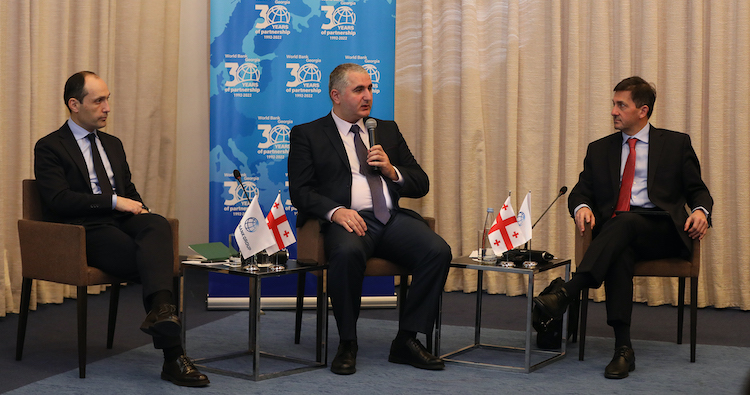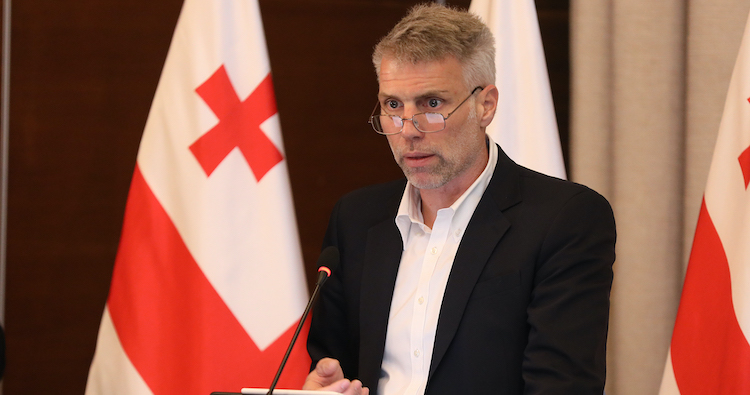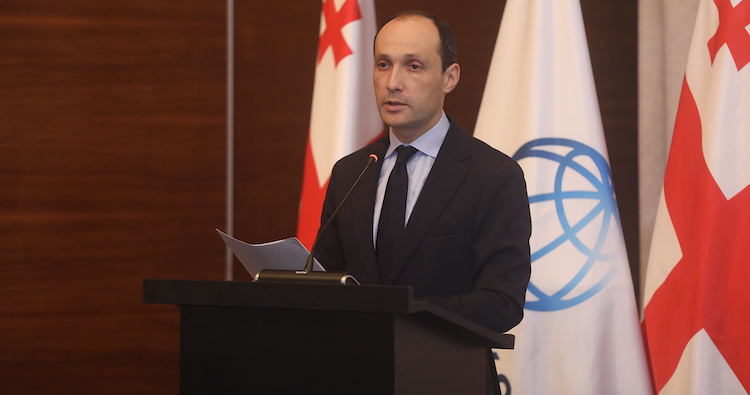World Bank launches Country Economic Memorandum for a "competitive, connected and capable" Georgia

The World Bank document highlights that “being a small economy, Georgian firms need to become more export-oriented and better connected”. Photo: Nino Alavidze/Agenda.ge
Georgia’s "sound economic management" and "good business environment" will continue to support economic activity, but further reforms will be required to keep the gross domestic product growth between 4-4.5 percent, according to the World Bank’s Country Economic Memorandum for Georgia, released on Tuesday.
The report reflects Georgia’s “significant development gains” over the past decade, while aiming to inform Government policies and “help facilitate similar successes” over the next 10 years.
The Country Economic Memorandum recommends that Georgia could maximise its growth potential by:
- Facilitating the ongoing structural and spatial transformations
- Improving productivity performance at the sector- and firm-level
- Increasing connectivity and external trade
- Building up and better utilising human resources
 Photo: World Bank
Photo: World Bank
Sebastian Molineus, the World Bank Regional Director for the South Caucasus, said Georgia had overseen a “successful economic expansion this last decade”, but suggested the country continue reforming its economy to help ensure “another successful decade”.
A more capable, competitive, and connected Georgia will be better placed to navigate the global trends of falling growth potential, rising debt, strains in global value chains, disruptive technologies, and climate change – all of which stand to either pose risks to growth or, if managed proactively, offer potential opportunities”, he said.
 Sebastian Molineus. Photo: World Bank
Sebastian Molineus. Photo: World Bank
Georgian Economy Minister Levan Davitashvili said over the recent years Georgia had made "significant progress" in macroeconomic stability, economic resilience, private sector competitiveness, structural improvement of the economy and the development of respective regulatory frameworks.
We are committed to building on this success and strengthening efforts to support productivity enhancement reforms, connectivity improvement, increasing Georgia’s integration in global value chains, human capital development and unlocking new opportunities for digitalisation and innovation", Davitashvili pointed out.
 Levan Davitashvili. Photo: World Bank
Levan Davitashvili. Photo: World Bank
The World Bank document also raises economy-wide constraints that may be affecting productivity, including access to finance, informality, competition, as well as firm capabilities such as managerial skills and innovation. The CEM highlights that “being a small economy, Georgian firms need to become more export-oriented and better connected”.
The report recommends for savings to increase to restore stronger investment rates without raising debt sustainability issues.
This could be done by continued prudent macroeconomic policies, strengthening the corporate governance and performance of state-owned enterprises, and by improving financial literacy of households, especially in terms of long-term decisions regarding education and health", it notes.
Finally, the CEM addresses Georgia’s skills and labour market challenges, pointing to a mismatch between jobs created and the education profile of the labour force, a skills gap stemming from weaker teaching practices and limited links with employers, and underdeveloped labour market institutions that limit information access and employment services.
 Tweet
Tweet  Share
Share